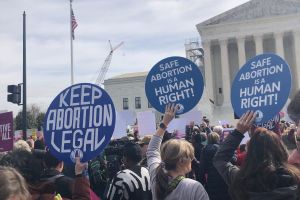Judge Blocks Obama's Embryonic Stem Cell Research Policy
A federal judge on Monday blocked President Obama's embryonic stem cell research policy, concluding that it violates a ban on federal funds being used in the destruction of human embryos.
The preliminary injunction was issued as a lawsuit against the policy proceeds in court.
"The American people should not be forced to pay for experiments – prohibited by federal law – that destroy human life," said Steven H. Aden, senior legal counsel with the Alliance Defense Fund. "The court is simply enforcing an existing law passed by Congress that prevents Americans from paying another penny for needless research on human embryos."
ADF is co-counsel in the lawsuit, Sherley v. Sebelius.
Pro-life researchers and groups, including Nightlight Christian Adoptions and Christian Medical Association, filed a federal lawsuit last year after President Obama signed an executive order, removing limitations on embryonic stem cell research and expanding federal funding.
Many pro-life groups equate embryonic stem cell research with abortion because it necessitates the destruction of the embryo during the process of harvesting the stem cells.
In the suit, the plaintiffs argued that the research violates a law known as the Dickey/Wicker Amendment, which prohibits federal funds from being used to destroy human embryos for research purposes.
The suit was dismissed last October by Chief Judge Royce C. Lamberth of Federal District Court for the District of Columbia who said the plaintiffs lacked standing.
The dismissal was then reversed in June by the U.S. Court of Appeals for the D.C. Circuit, which ruled that the plaintiffs have "competitive standing" to sue, and was remanded back to Judge Lamberth.
Lamberth rejected arguments that the 1996 Dickey-Wicker Amendment was ambiguous. He said the language of the statute is plain and clearly prohibits the expenditure of federal funds on "research in which a human embryo or embryos are destroyed."
"Having concluded that the Dickey-Wicker Amendment is unambiguous, the question before the Court is whether ESC research is research in which a human embryo is destroyed. The Court concludes that it is," he wrote.
"ESC research is clearly research in which an embryo is destroyed. To conduct ESC research, ESCs must be derived from an embryo. The process of deriving ESCs from an embryo results in the destruction of the embryo. Thus, ESC research necessarily depends upon the destruction of a human embryo."
Praising the ruling, ADF's Aden commented, "No one should be allowed to decide that an innocent life is worthless."
He also pointed to the success of adult stem cell research and said experimentation on embryonic stem cells isn't even necessary.
"In economic times like we are in now, it doesn't make sense for the federal government to use precious taxpayer dollars for this illegal and unethical purpose," Aden stated.
The plaintiffs in the lawsuit are researchers who work exclusively with adult stem cells. They have argued that obtaining federal funding is necessary for their continued research but allowing funding of ESC research has increased competition for the National Institutes of Health's limited resources.





























